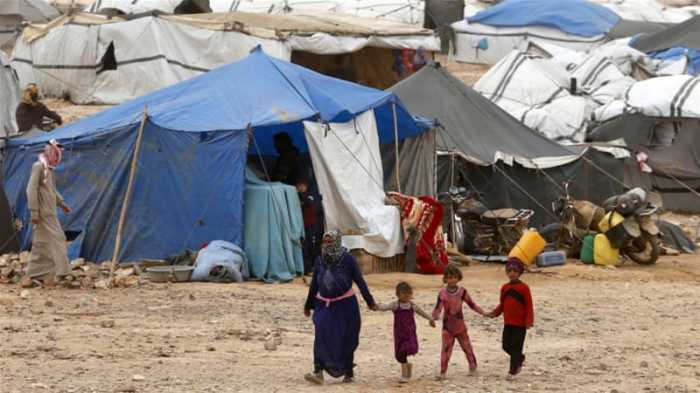Syrian Girls Told to Perform Sexual Acts for Aid; UN Condemned for Ignoring Abuse for '7 Years'

The United Nations has been condemned by aid workers who say that men delivering humanitarian aid on behalf of the organization in Syria have routinely demanded sexual acts from women and girls. And the abuse has been ignored for years.
Several aid workers talked about the level of exploitation going on at refugee camps for people affected by the ongoing Syrian civil war, BBC News reported.
One worker, who wasn't named, claimed that humanitarian agencies have turned a blind eye to the sexual abuse carried out by third parties, so that they can continue providing aid in dangerous parts of Syria.
Danielle Spencer, a humanitarian adviser in the charity sector, also spoke of a number of incidents in March 2015 in Jordan, where women shared with her how men had offered aid in exchange for sex.
"I remember one woman crying in the room and she was very upset about what she had experienced. Women and girls need to be protected when they are trying to receive food and soap and basic items to live. The last thing you need is a man who you're supposed to trust and supposed to be receiving aid from, then asking you to have sex with him and withholding aid from you," Spencer recalled.
"It was so endemic that they couldn't actually go without being stigmatized. It was assumed that if you go to these distributions, that you will have performed some kind of sexual act in return for aid."
The International Rescue Committee carried out a survey of 190 women and girls in Dara'a and Quneitra in June 2015, finding that as many as 40 percent pointed to sexual violence that goes on when attempting to access humanitarian aid.
Despite numerous charities attempting to improve their methods in delivering aid following the publication of the accusations, Spencer said that many continue to turn a blind eye to abuses.
"Sexual exploitation and abuse of women and girls has been ignored, it's been known about and ignored for seven years," she continued.
"The U.N. and the system as it currently stands have chosen for women's bodies to be sacrificed.
"Somewhere there has been a decision made that it is OK for women's bodies to continue to be used, abused, violated in order for aid to be delivered for a larger group of people."
Andrej Mahecic, a spokesman for the U.N. High Commissioner for Refugees, said in response that it was "important to understand that in any aid emergency there is a risk of sexual abuse and sexual exploitation, and to abuse somebody who is in need of assistance is despicable."
He explained that allegations against the U.N. made in 2015 were found to be "incomplete, fragmented and unsubstantiated," and claimed that the U.N. had no access to areas in southern Syria where much of the abuse allegedly took place.
"The mere suggestion that the U.N. can somehow control the situation in a war zone is rather simplistic and disconnected from the reality of what an aid operation looks like in an open and fierce conflict," Mahecic stated.
The humanitarian sector, including Christian aid groups, has been engulfed in revelations of mass sexual abuse and harassment scandals.
Oxfam, Christian Aid, Save the Children, and the Red Cross were some of the major British charities that admitted to dealing with sex scandals earlier in February.
Penny Lawrence, the now former deputy chief executive of Oxfam, resigned from her position following revelations that staff members had paid for the use of prostitutes in Haiti and other places.
Evangelical children's charity World Vision denied similar accusations earlier this month, stating that unlike what is being reported in the media, those involved in sexual exploitation in Haiti were "community volunteers and cash-for-work beneficiaries themselves," rather than World Vision staff.
The group also said that it has implemented follow-up protocols and training procedures to cut down on such practices.





























